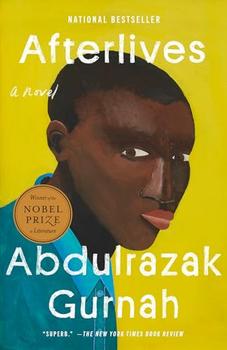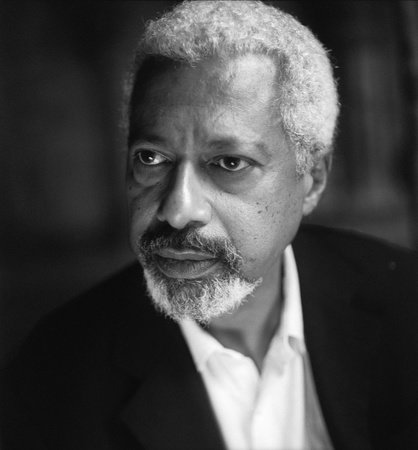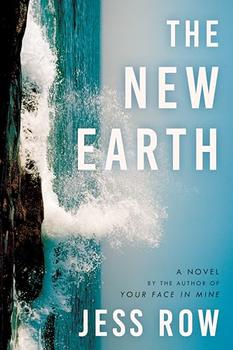Summary | Excerpt | Reviews | Beyond the book | Read-Alikes | Genres & Themes | Author Bio

A Novel
by Abdulrazak GurnahFrom the winner of the 2021 Nobel Prize in Literature, a sweeping, multi-generational saga of displacement, loss, and love, set against the brutal colonization of East Africa.
When he was just a boy, Ilyas was stolen from his parents on the coast of East Africa by German colonial troops. After years away, fighting against his own people, he returns home to find his parents gone and his sister, Afiya, abandoned into de facto slavery. Hamza, too, returns home from the war, scarred in body and soul and with nothing but the clothes on his back--until he meets the beautiful, undaunted Afiya. As these young people live and work and fall in love, their fates knotted ever more tightly together, the shadow of a new war on another continent falls over them, threatening once again to carry them away.
Gurnah's playing the long game here; the more important effect is the cumulative one. Like in life, watershed moments are buried deep within paragraphs; plotlines are dropped and forgotten until hundreds of pages later. Sometimes the book rushes through years and distance so quickly that the narration seems breathless, and yet, without any big dramatic moments, the world feels static—like when you're on a plane and you look at the motionless squares of land beneath you. I think there's something about this slow-moving portrait that allows Gurnah to capture the complexity and enmeshment of colonial relations; he's managed to blur the lines between German colonizers and native Africans without presenting some flipped-script fantasy of moral ambiguity. This is not a tale of mutiny, or of decisive victory, but rather one of preserving one's autonomy in a world of powerful and sustained external forces. I loved Afterlives, and was drawn in fully to its emotional world, which reads like life itself—languid, anticlimactic, ever moving but only gradually changing...continued
Full Review
(916 words)
This review is available to non-members for a limited time. For full access,
become a member today.
(Reviewed by Chloe Pfeiffer).
 Abdulrazak Gurnah, the Tanzanian-born British author of Afterlives, is the 2021 winner of the Nobel Prize in Literature and the first Black writer to win it since Toni Morrison in 1993. He was awarded the prize "for his uncompromising and compassionate penetration of the effects of colonialism and the fate of the refugee in the gulf between cultures and continents."
Abdulrazak Gurnah, the Tanzanian-born British author of Afterlives, is the 2021 winner of the Nobel Prize in Literature and the first Black writer to win it since Toni Morrison in 1993. He was awarded the prize "for his uncompromising and compassionate penetration of the effects of colonialism and the fate of the refugee in the gulf between cultures and continents."
Gurnah is understandably interested in postcolonialism and displacement. He grew up in Zanzibar, an island off the east coast of Africa, when it was a British protectorate and a sultanate (now it is part of Tanzania). In January 1964, a leftist revolt overthrew the sultanate to establish a republic, which ended the power of the Arab ruling class over the majority-African ...
This "beyond the book" feature is available to non-members for a limited time. Join today for full access.

If you liked Afterlives, try these:

by Abdulrazak Gurnah
Published 2025
In his first new novel since winning the 2021 Nobel Prize, a master storyteller captures a time of dizzying global change.

by Jess Row
Published 2024
A globe-spanning epic novel about a fractured New York family reckoning with the harms of the past and confronting humanity's uncertain future, from award-winning author Jess Row